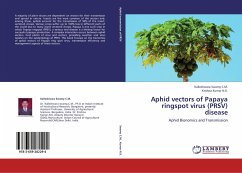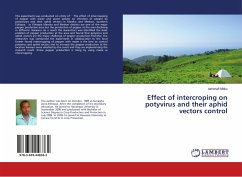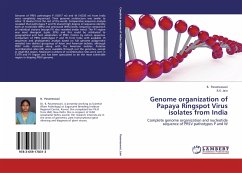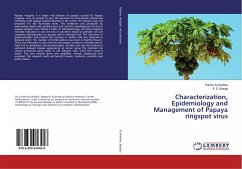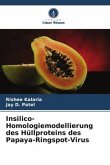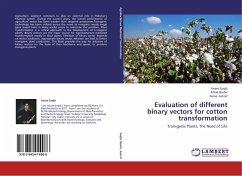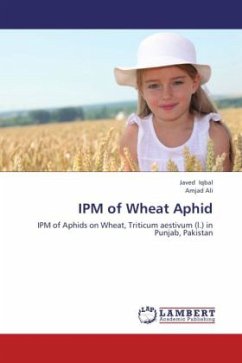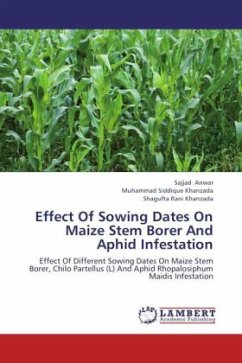A majority of plant viruses are dependent on vectors for their transmission and spread in nature. Insects are the most common of the vectors and, among these, aphids account for the transmission of 50% of the insect-vectored viruses. Various crops suffer up to 100% loss in different parts of the world due to many insect vectored viruses. Papaya is one such crop in which Papaya ringspot (PRSV), a serious viral disease is a limiting factor for successful papaya production. A complex interaction occurs between aphid vectors, host plants of virus and vectors, prevailing weather and virus isolates on the epidemiology of PRSV. This book focuses on the bionomics of aphid vectors of Papaya ring spot virus, transmission efficiency and management aspects of these vectors.
Bitte wählen Sie Ihr Anliegen aus.
Rechnungen
Retourenschein anfordern
Bestellstatus
Storno

